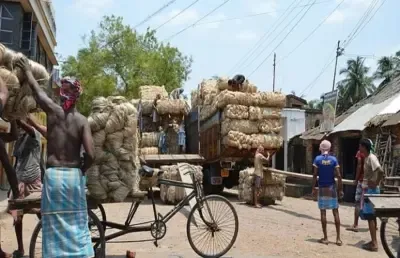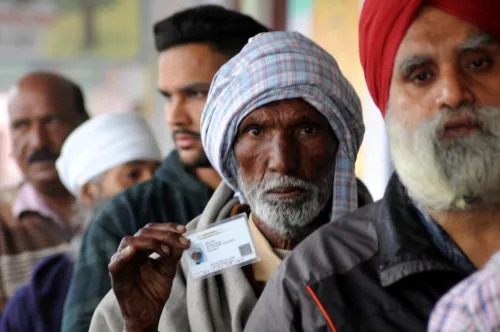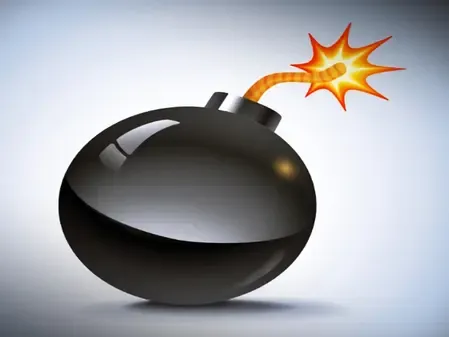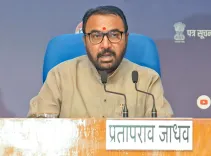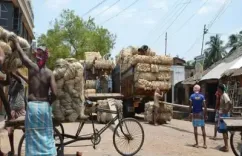How is the Centre Ensuring Rational Use of Cough Syrups?
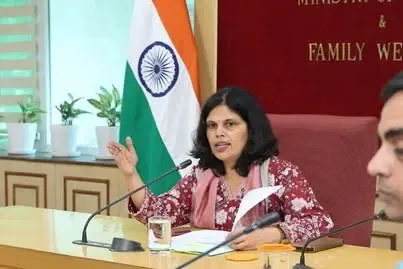
Synopsis
Key Takeaways
- Government mandates rational use of cough syrups, especially for children.
- High-level meetings aim to ensure drug quality compliance.
- Contaminated cough syrups linked to child fatalities prompted swift action.
- Manufacturers must adhere to strict quality standards.
- States are encouraged to enhance surveillance and reporting systems.
New Delhi, Oct 5 (NationPress) Due to rising concerns over the quality and administration of cough syrups, the government has mandated that states ensure rational usage of these syrups, especially for children, as many coughs are self-limiting and do not necessitate pharmacological treatment.
The Health Ministry held a high-level meeting led by Health Secretary Punya Salila Srivastava, engaging all states and Union Territories to assess adherence to drug quality standards and advocate for the prudent use of cough syrups in pediatric cases.
Previously, Health Minister J.P. Nadda had instructed discussions with states/UTs to implement necessary measures.
This meeting comes in response to alarming reports of child fatalities in Chhindwara, Madhya Pradesh, allegedly associated with contaminated cough syrups.
The Metropolitan Surveillance Unit (MSU) in Nagpur, created under the Pradhan Mantri–Ayushman Bharat Health Infrastructure Mission (PM-ABHIM), reported a cluster of cases and related deaths to the Integrated Disease Surveillance Programme (IDSP) and the National Centre for Disease Control (NCDC) from a block in Chhindwara District.
In response to the situation, a central team comprising epidemiologists, microbiologists, entomologists, and drug inspectors from the NCDC, the National Institute of Virology (NIV), and the Central Drugs Standard Control Organisation (CDSCO) visited Chhindwara and Nagpur to perform a comprehensive analysis of the reported cases and fatalities, in collaboration with Madhya Pradesh State Authorities.
Various clinical, environmental, entomological, and drug samples were collected and sent to NIV Pune, Central Drugs Testing Laboratory (CDTL) in Mumbai, and NEERI Nagpur for laboratory analysis.
Initial findings ruled out common infectious diseases apart from one positive case of Leptospirosis. Nineteen medicine samples consumed by children were gathered from treating private practitioners and local retail outlets.
The chemical analysis revealed that out of 10 samples examined thus far, nine met the quality standards.
However, one sample, the cough syrup ‘Coldrif’, was found to contain diethylene glycol (DEG) beyond acceptable limits. Consequently, regulatory action has been initiated by the Tamil Nadu FDA against the manufacturing unit located in Kancheepuram, Tamil Nadu. The CDSCO has recommended the cancellation of the manufacturing license based on inspection findings, and criminal proceedings have also commenced.
The Health Secretary stressed the importance of strict adherence to the Revised Schedule M by all drug manufacturers. States were urged to ensure the rational use of cough syrups among children, given that most coughs are self-limiting and do not require pharmacological treatment.
The advisory released by the DGHS regarding the rational use of cough syrups for pediatric populations was also addressed.
States and UTs were advised to enhance surveillance, ensure timely reporting by all health facilities (both government and private), widely disseminate the community reporting tool of IDSP-IHIP, and strengthen inter-state coordination for early reporting and collaborative action in the context of outbreak responses and unusual health events.

